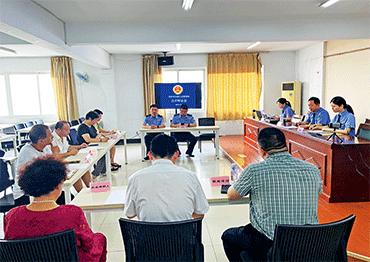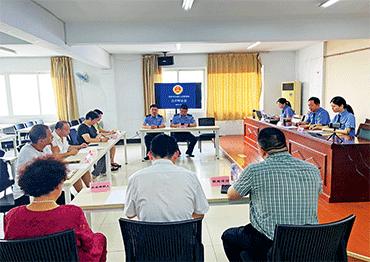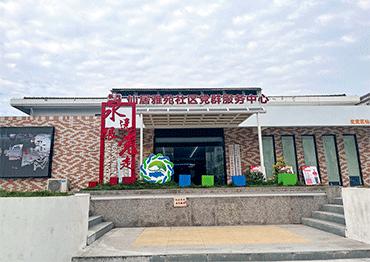The procedure for handling misdemeanors needs to be simple and quick. Sometimes when public services are involved in the process, cases drag on.��
Xie Rong’s case was accepted by Xuanwu District Procuratorate in March 2023, and it was finalized and closed in August after she did her public service. Zhou Ying said that the average handling time of misdemeanor cases is 68 days, which is much longer than the handling of misdemeanor cases with the expedited procedure.
Lack of coordination between different places across different provinces and cities poses challenges for linking social public service with misdemeanor non-prosecutions. Some people who committed misdemeanors in Xuanwu, but who were not officially registered in that community, are required to return to their registered community or village to serve the sentence and to be monitored. But not every place is set up for this, and if offenders cannot find an acceptable place to do community service, they have no choice but to face prosecution, and perhaps imprisonment.
More importantly, there is still no legal basis for non-prosecution being linked to social public services, and no top-down instructions on how to establish such a program.
For the moment, there are various attempts to explore such a program across the country, which may drive changes from the bottom-up in the future.
Wang Fenghua, executive deputy secretary of Xuanwu District Political and Legal Committee, told NewsChina that so far over 200 defendants who committed a misdemeanor have participated in community service. In Wang’s opinion, as they gain more experience in dealing with cases, they will be able to develop a more complete system and standards for misdemeanor management.
However, misdemeanor management is an issue that demands increased cooperation between police, prosecutors, courts and the judiciary department. There are still big gaps in ethos among these public institutions.
China’s Supreme Court recently issued guidance on a case. The SPP said that a man surnamed Zhu in Kunming, Yunnan Province stole 16 pot plants over three occasions from a community member’s compound. The total value of the pots and plants was 98 yuan (US$14). Wuhua District police placed Zhu on file under suspicion of theft, and he was placed in detention the next day. The police station requested an arrest warrant from Wuhua District prosecutors.
While the prosecutor concluded that Zhu did commit multiple thefts, the overall value was low. After Zhu was discovered, he returned the plants and compensated the victim, so his crime was a misdemeanor that did not cause significant harm and the arrest warrant was denied.
In order to strengthen cooperation among different public agencies in handling misdemeanor cases, Xuanwu District has established a joint conference mechanism that allows stakeholders to reach a consensus through discussion. Zhou Ying said that for misdemeanor management, cooperation between departments is normal now.
Prosecutors emphasized that misdemeanor management is a systematic process, and apart from requiring cooperation between agencies, it also needs cooperation among different parties such as civil affairs bureaus, education providers and communities.
Zhou believes the system has a common goal to ensure that people who committed misdemeanors can better return to society and minimize the population of societal miscreants.
According to Hou Yahui, the priority for the SPP is to clearly define the boundaries between crimes and non-crimes, legal violations and criminal deeds.
“We should, for example, based on the experience gained from management of drunk driving, strengthen research on criminal standards and crime management toward misdemeanor cases such as involvement in telecom fraud, concealing illegal income, illegal fishing and illegal poaching,” Hou said. “We will improve the hierarchical management mode for illegal criminal activities, so we can enhance social harmony and stability,” he added.

 Old Version
Old Version


